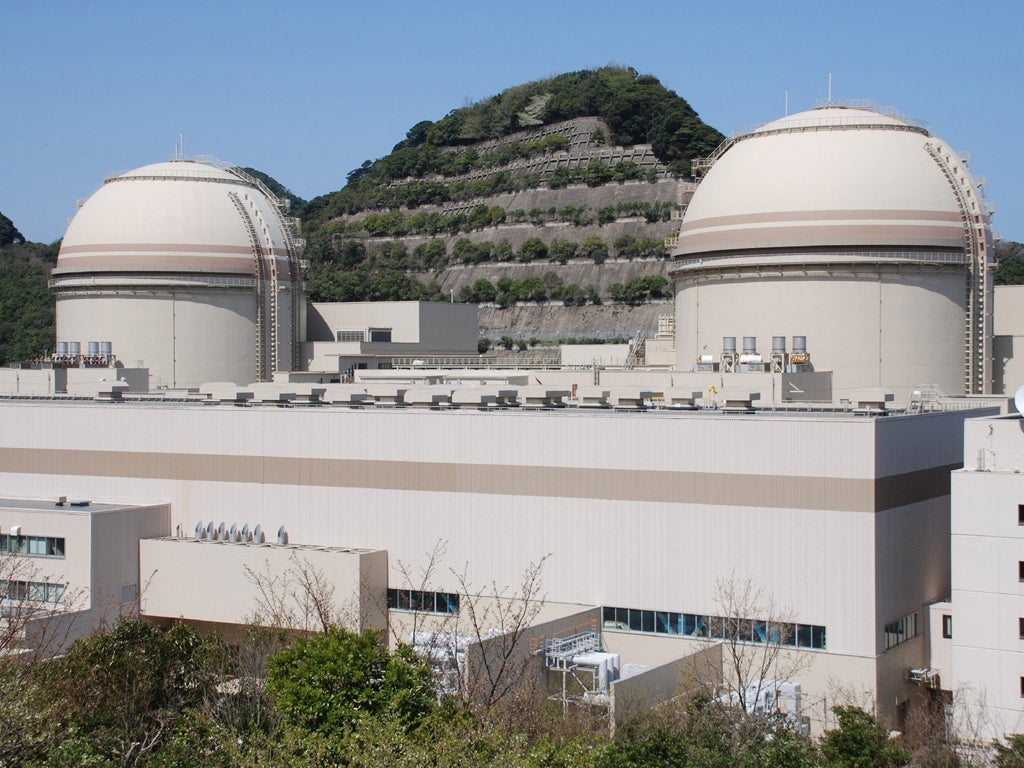Our fear of nuclear energy may cost us the earth
The Japanese are paying a heavy price for their retreat from nuclear power stations

It would have been hard to imagine back in 1945 that the most permanent and devastating consequences of mankind’s discovery of nuclear weapons might one day be summarised not by the names Hiroshima and Nagasaki, but by that of another Japanese city: Fukushima.
The atomic bombs that fell on Japan at the end of the Second World War were so devastating that it seems almost indecent to say that – particularly when the case is a subtle one, with no horror so stark as the instantaneous deaths of at least 100,000 people. This unfolding disaster, instead, has psychological roots, not in the destructive force of those weapons, but in the weight of the word that defines them. The meltdowns at Fukushima have to date killed nobody. Three Mile Island, likewise, cannot be connected with a single documented fatality.
Even Chernobyl, the very worst such catastrophe the world has witnessed, caused the deaths of 28 people through exposure to high doses of radiation and, later, another 15 from thyroid cancer. The number of deaths caused by oil and coal extraction, in contrast, are in the thousands every year. But we press on with those dirty fuels regardless.
The reason is simple, at least as far as the public debate goes: those fuel sources do not share a scientific basis, and a name, with the most terrifyingly destructive force ever devised by humanity. Radiation is a scary thing, much less graspable than a car crash or a house fire or any of the other dangers that kill people in very much larger numbers every year. You can’t see it, you don’t understand it, and you won’t notice when it is hurting you. And these factors, it seems to me, exert a much larger influence on public attitudes to nuclear power than anything more rational – with possibly disastrous results.
Look at Japan, where the last working nuclear reactor shut down today, with no timetable for a restart. That milestone is the understandable final step of a retreat that began soon after the 2011 tsunami, and it will presumably make the Japanese public feel very much safer. Unfortunately, they will also pay a heavy price – as will we. To cover the 30 per cent of electricity that used to come from nuclear energy, Japan now imports huge quantities of liquefied natural gas (LNG) – around a third of the world’s supplies. That has created a significant trade deficit. The irony is that the reaction to Fukushima has perhaps been more damaging to Japan than the disaster itself ever was.
The consequences of Fukushima do not end there. For one thing, it is pushing up costs of LNG here as well. And as with previous disasters, the chilling effect on the use of nuclear power worldwide has been enormous. Three months after the tsunami, Germany declared its intention to phase out nuclear power by 2022. The idea is to make a huge move towards renewable energy, certainly a laudable goal. But so far it hasn’t worked that way. German CO2 emissions have actually risen for the past two years; it is building new fossil-fuel power stations at a rapid rate to make up for the shortfall. At best, Germany will stay still on its carbon emissions by running very fast indeed. Had it stuck with nuclear but gone ahead with its renewable subsidy plans, it would have made a sizeable dent in its emissions. No wonder analysts are talking about a “lost decade” – and all this in a country that is safe from the kind of seismic shock that caused the Fukushima disaster. If there is a logic to this, I can’t see it.
While the economic consequences will be serious, this is the most profound cost of our aversion to nuclear: the impact on the climate, and hence on future generations. The same is true in Japan, which has been forced to abandon its carbon emissions target for 2020. In this context, it is avowedly good news that the Liberal Democrat Energy Secretary, Ed Davey, has persuaded his party to accept a role for nuclear power. That means that all three major parties now accept the need for nuclear.
Unfortunately, the Lib Dems’ deeply cautious step isn’t really enough. As Davey pointed out to his party’s conference in Glasgow on Sunday, it will be “unimaginably” hard to reduce our carbon emissions as we need to without more nuclear power stations. But he also said that there would be no public subsidy for nuclear energy – and without public subsidy, it doesn’t seem very likely that more nuclear power stations are going to get built.
That there are many Greens who will take solace in that fact is a deeply disturbing state of affairs. Their opposition to nuclear seems, once again, to be more deeply psychologically rather than scientifically rooted; and it gestures towards the need for a new mainstream radicalism on nuclear power, and on climate change more generally, a wholehearted embrace of whatever works, no matter the historical baggage.
There are many things wrong with nuclear power and the industry that produces it; and there is no question that it is a historically fraught alternative. But to reject it at this point is not to hold firm to a principle – it is to put the dogma of environmentalism above the vital interests of the people that it is supposed to serve. We might be scared of nuclear energy, and there might be powerful reasons for that fear. But we have to embrace it – for the alternative is very much worse.
Twitter: @archiebland
Join our commenting forum
Join thought-provoking conversations, follow other Independent readers and see their replies
Comments
Bookmark popover
Removed from bookmarks